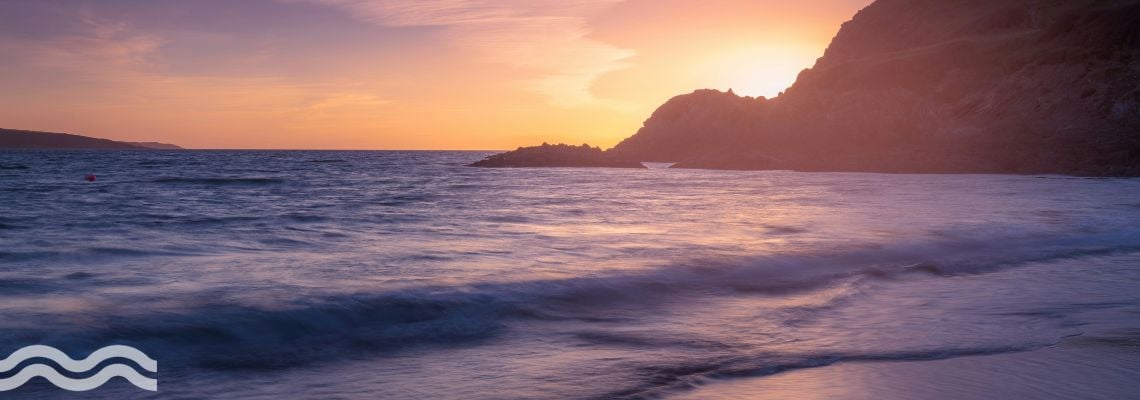7 projects selected to assess UK water biodiversity
The health and biodiversity of UK waters will be assessed by seven projects that have received funding from Innovate UK and the Department for Environment, Food and Rural Affairs (Defra).
Natural capital for the marine environment
The seven projects will share a prize fund worth just over €1.5 million as part of the government’s Natural Capital and Ecosystem Assessment (NCEA) programme, which is investing €2.43 million in ‘integrating natural capital approaches into decision making for the marine environment’.
Monitoring the biodiversity of UK waters can help develop a working knowledge of the state of marine eco-systems and of water quality and health.
Keeping oceans clean and healthy
This award marks the second round of funding; the first took place in May 2023. The winning projects will develop ‘complete end-to-end marine monitoring systems and their verification and validation’.
Lord Benyon, minister of state for Climate, Environment and Energy, said: “It is more important than ever that we invest in advanced technology such as artificial intelligence, drones and molecular tools to bolster our capabilities to monitor biodiversity in our seas.
“I look forward to seeing how projects from the second round of funding will provide us with the best capabilities available so that we can improve our efforts to keep our ocean clean, healthy and protected.”
Andrew Tyrer, robotics challenge director, Innovate UK, said: “Being able to award more funding in a second round of this competition builds on the work of round one and represents a deepening of the partnership between Innovate UK and Defra.”
Round two projects
Category: Maximising seagrass regeneration through advanced artificial intelligence (AI) mapping and ultra-low carbon solutions
Award winner: Unmanned Survey Solutions, Geoacoustics, Acua Ocean
Combining AI and machine learning with wide advanced wide swath bathymetric sonar systems to determine the presence of seagrass meadows. The system transmits sonar beams over 40 times wider than a typical single beam sonar system, allowing for far greater spacing between survey lines, and therefore, significantly reducing survey times. The system is deployed from an unmanned carbon-neutral vessel, which reduces operating costs.
Category: End-to-end marine monitoring solution for capturing and sharing environmental data to support marine net gain
Award winner: Plant Ecology Beyond Land CIC, Offshore Renewable Energy Catapult, Oceanos Earth
Testing a solution that includes collecting, processing and analysing data, both remotely and in real-time, using sensors, underwater cameras and acoustics.
David Lamb, co-founder, Oceanos Earth, told Aquatech Online: “We’re delighted to have been awarded funding as part of the Innovate and Defra grant, working with our partners PEBL and Offshore Renewables Catapult.
“Our project is focused on collecting, processing, and analysing a variety of data sources to report on marine biodiversity. Aligning with incoming marine-net-gain legislation here in the UK.”
The project is concerned with the damage that can potentially be caused to marine environments by the construction of offshore windfarms, including water turbidity. The solution aims to provide data that can support make informed decisions for the sustainable build-out of future offshore wind farms.
Category: An automated end-to-end eDNA-based marine biodiversity and species monitoring system
Award winners: Platform Kinetics, Intuitiq
Building on a successful phase one project, this second phase will develop AMBER (Automated Monitoring of Biodiversity via eDNA Recovery) systems building blocks. Marine water will be sampled by lab-on-a-chip technology to process eDNA in near real-time. This will help to determine the presence of species and monitor habitats and biodiversity.
Category: Renewably powered micro-vessels for an end-to-end biodiversity monitoring system
Award winner: Oshen
Developing an end-to-end system, building on a phase one project, in the form of a micro-vessel that allows anyone to deploy, track and easily change location, to allow them to monitor cetaceans and seabirds. Users will have access to live data, databases and data visualisation, without the need for manual processing.
Category: Seagrass observation using novel acoustic remote sensing (SONARS)
Award winner: HydroSurv Unmanned Survey (UK)
Blending cutting-edge hydroacoustic data collection techniques with novel analysis components powered by recurrent neural network (RNN) long short-term memory algorithms, to enable interpretation of intricate hydroacoustic and optical datasets that allow users to gain deep insights into underwater habitats.
Category: AlgaRover: macroalgal aquaculture marine biodiversity observation AI rover (MAMBOAR)
Award winners: Seaweed Generation, South West Mull and Iona Development, Algapelago Marine
Developing a remotely operated AUV able to conduct biodiversity monitoring using environmental sensors, a camera system and passive acoustic recording. Machine learning will be used to develop methods for animal recognition and species identification.
Category: High speed drone constellation for real time monitoring of marine ecosystems
Award winner: Marble Aerospace
Developing a new end-to-end system based on using a fleet of small (less than 10kg) high performance (more than 100km range) electric drones, to reduce the cost of aerial surveillance, making it affordable enough for a permanent deployment, where budgets are limited.
We promise never to send you spam and you can unsubscribe at any time!
